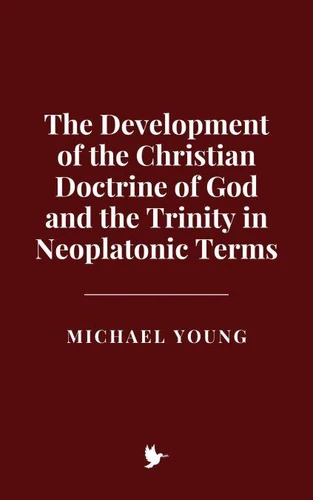The Development of the Christian Doctrine of God and the Trinity in Neoplatonic Terms
Par :Formats :
Disponible dans votre compte client Decitre ou Furet du Nord dès validation de votre commande. Le format ePub est :
- Compatible avec une lecture sur My Vivlio (smartphone, tablette, ordinateur)
- Compatible avec une lecture sur liseuses Vivlio
- Pour les liseuses autres que Vivlio, vous devez utiliser le logiciel Adobe Digital Edition. Non compatible avec la lecture sur les liseuses Kindle, Remarkable et Sony
 , qui est-ce ?
, qui est-ce ?Notre partenaire de plateforme de lecture numérique où vous retrouverez l'ensemble de vos ebooks gratuitement
Pour en savoir plus sur nos ebooks, consultez notre aide en ligne ici
- FormatePub
- ISBN8231074457
- EAN9798231074457
- Date de parution17/05/2025
- Protection num.pas de protection
- Infos supplémentairesepub
- ÉditeurWalzone Press
Résumé
The development of the Christian doctrine of God and the Trinity marks a pivotal transformation in theological thought, not only within the Christian tradition but in the broader intellectual landscape of Late Antiquity. Christianity's conception of God as a triune being-the Father, the Son, and the Holy Spirit-was not simply a matter of religious belief, but an intellectual endeavor that engaged with and often responded to the prevailing philosophical systems of the time, especially those of Greek and Roman origin.
One of the most significant of these philosophical systems was Neoplatonism, a development of Platonic thought which would leave a profound imprint on the shaping of Christian theological concepts.
One of the most significant of these philosophical systems was Neoplatonism, a development of Platonic thought which would leave a profound imprint on the shaping of Christian theological concepts.
The development of the Christian doctrine of God and the Trinity marks a pivotal transformation in theological thought, not only within the Christian tradition but in the broader intellectual landscape of Late Antiquity. Christianity's conception of God as a triune being-the Father, the Son, and the Holy Spirit-was not simply a matter of religious belief, but an intellectual endeavor that engaged with and often responded to the prevailing philosophical systems of the time, especially those of Greek and Roman origin.
One of the most significant of these philosophical systems was Neoplatonism, a development of Platonic thought which would leave a profound imprint on the shaping of Christian theological concepts.
One of the most significant of these philosophical systems was Neoplatonism, a development of Platonic thought which would leave a profound imprint on the shaping of Christian theological concepts.






















